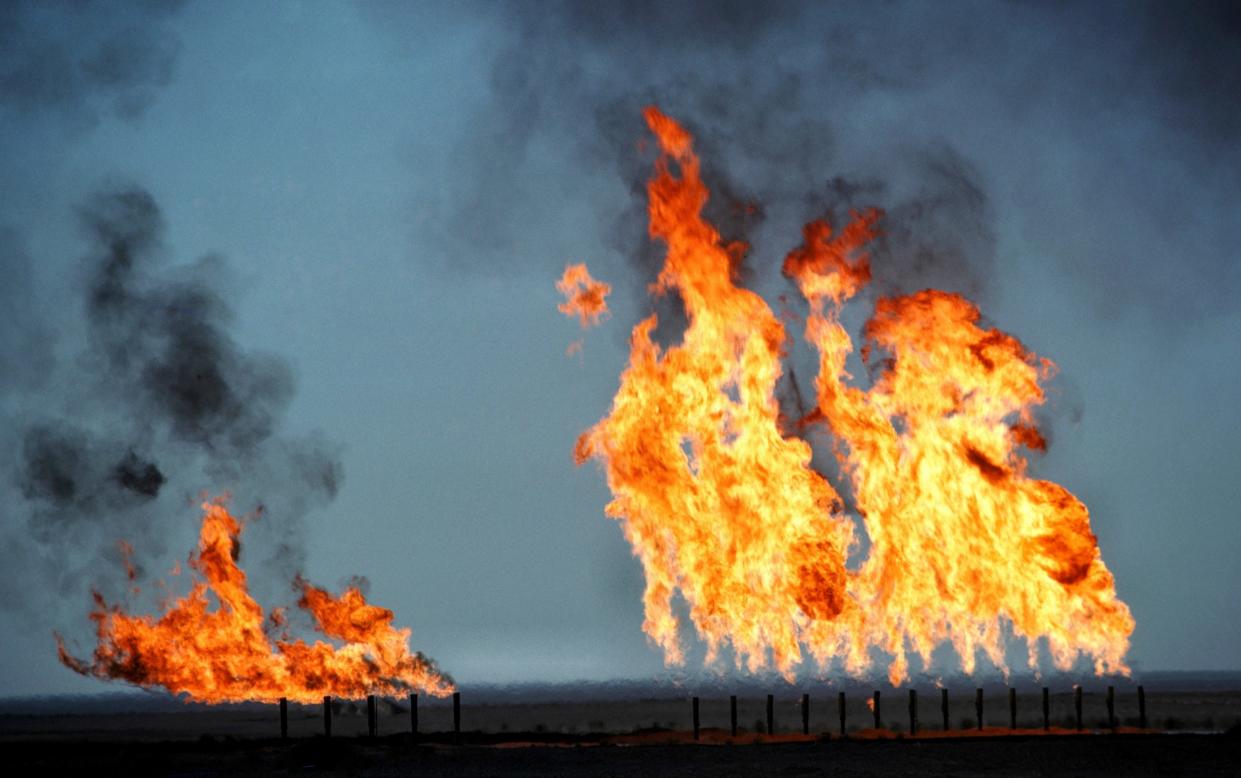Iraqi father seeks compensation from BP for son’s leukaemia death in legal first

An Iraqi father is seeking compensation from BP for the death of his 21-year-old son in what is thought to be the first case brought against a major oil firm for “flaring”.
Hussein Julood alleges that burning off excess gas at a BP-run Iraqi oil field in Rumaila, a practice known as flaring, unleashed toxic and carcinogenic chemicals that caused his son, Ali, to develop leukaemia.
A keen footballer, Ali lived in Rumaila with his family. He was diagnosed with blood cancer at the age of 15. He documented his life living in the oil field as part of a BBC investigation into flaring before passing away last year.
Mr Julood is seeking compensation to cover the cost of his late son’s medical treatment, which included chemotherapy and bone marrow transplants, and the funeral.
“I am just hoping for those who hear my voice, from BP, to consider my situation. I am not representing myself alone; I am also representing those poor people living here and suffering from pollution,” Mr Julood told the BBC.
Mr Julood has also claimed there have been four or five deaths locally from cancer since Ali’s, including a young boy last month. The Telegraph could not immediately verify those claims.
An Iraqi health ministry report leaked in 2022 identified pollution from the oil industry as one of the causes of a 20 per cent rise in cancer in Basra – the main city closest to Rumaila – between 2015 and 2018.
Dangerous for human health
That report also found the number of cancer cases in the region was three times higher than previously disclosed, noted Human Rights Watch. An earlier report by the BBC, in 2022, also found that flaring was dangerous for human health.
BP is at least partly responsible as the lead contractor at the Rumaila oilfield, according to a claim letter seen by the BBC. At the time, BP said with regards to flaring: “We understand the concerns and we’re in action.”
“This is an important example of environmental litigation seeking compensation for harmful emissions from a carbon major,” said Wessen Jazrawi, partner at law firm Hausfeld & Co, which is representing Mr Julood.
He added: “Such companies have generally been able to carry out harmful environmental practices with impunity, particularly where these occur in the Global South.”
Owned by Iraqi government
The Iraqi government is the owner of the Rumaila oil field, and BP is a contractor managing the site, along with others including Chinese state-owned firm, PetroChina.
Mr Julood’s lawyers said BP can enter negotiations on compensation or it can refute the claim. If BP refutes the claim the next step will be for Mr Julood to issue a court claim and the case could then be heard before judges in the UK.
When approached for comment by The Telegraph, BP sent a link to a 2023 statement that said it was “actively” supporting the oilfield’s lead contractor, Basra Energy Company Limited, in implementing changes to reduce flaring, emissions and black smoke near local communities.
In response to the legal action, BP told the BBC: “As we have stated before, BP is not and has never been the operator of the Rumaila field.
“Nevertheless, we continue to actively support the lead contractor – Basra Energy Company Limited – in its work to help the operator of the field, the Rumaila Operating Organisation, to reduce its flaring and emissions.”


